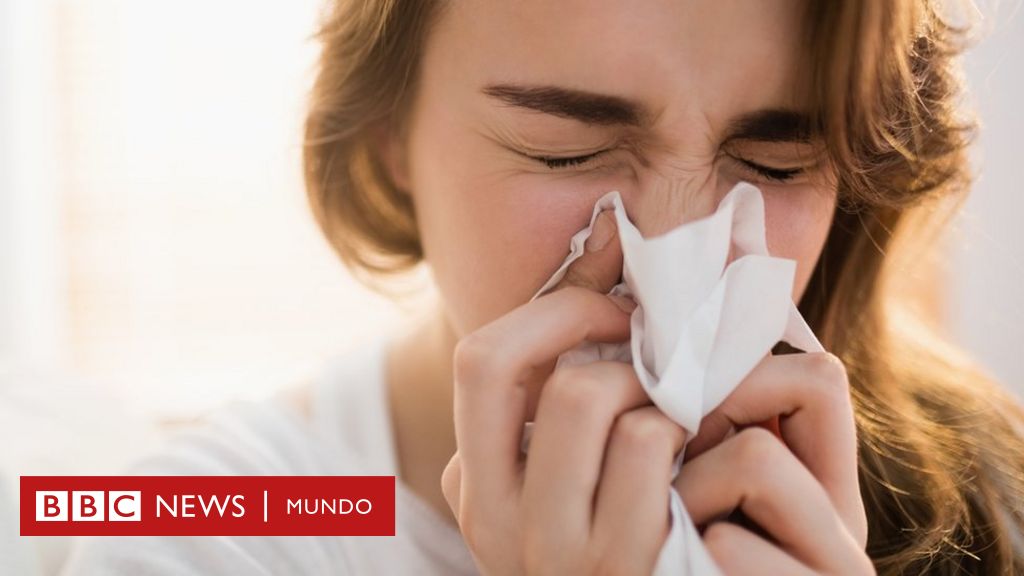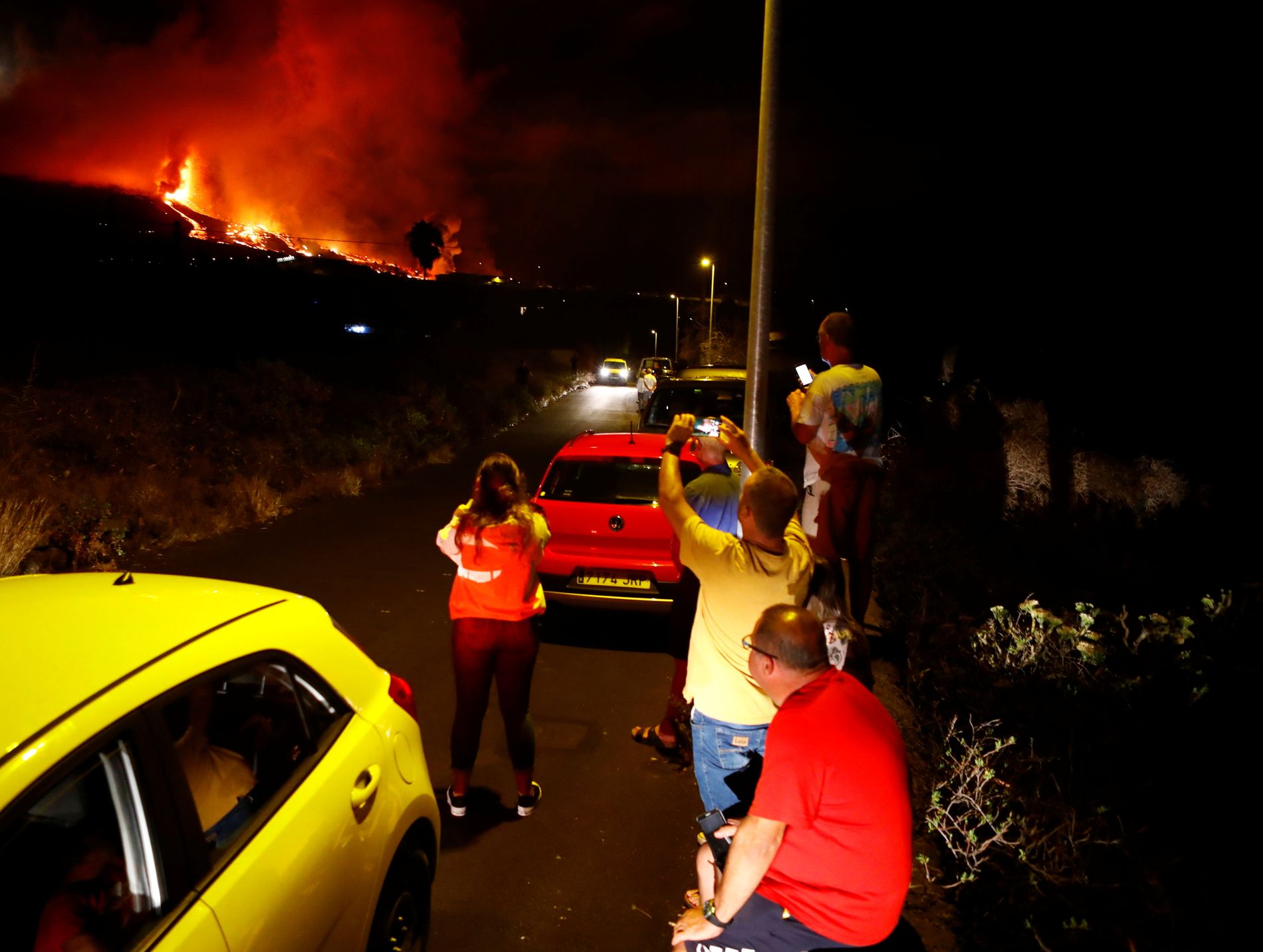- Vassilios Vassiliou, Ciaran Grafton-Clarke y Ranu Baral
- The Conversation*
—
Image source, Getty Images
—
–
Two weeks after the second dose of the covid-19 vaccine, the protective effects of the vaccine will be at their highest.
–
That’s when a person can say they are fully vaccinated. If after that you contract covid-19, then you have received a call “breakthrough infection” or infection in vaccinated.
–
Generally speaking, these are infections similar to those in unvaccinated people, but there are some differences.
–
This is what to keep in mind if a person is already fully vaccinated (one or two doses, depending on the formula received).
–
Symptoms are different
According to the Covid-19 Symptom Study, the five ailments more common of an infection in vaccinated are headache, runny nose, sneezing, sore throat and loss of smell.
–
Some of these are the same symptoms experienced by infected people who have not been vaccinated. Three symptoms in particular: headache, sore throat, and runny nose.
–
However, the other two most common symptoms in the unvaccinated are fever and persistent cough.
–
These two symptoms are “typical” of covid-19, but they become much less common once the vaccine has been received.
–
Image source, Getty Images
—
Vaccinated people have milder symptoms than unvaccinated people if they catch coronavirus.
–
A study concluded that people with infections in vaccinated have a 58% less from chances of having a fever, compared to unvaccinated people. For many, covid-19 is felt like a cold after vaccination.
–
Those people also have less likely to be hospitalized if they develop the disease. They are also likely to have fewer symptoms during the early stages of infection and are less likely to have the disease in the long term.
–
The reasons why the disease is milder in vaccinated people could be because the vaccines, while not blocking the infection completely, can cause the infected person to have fewer virus particles on your body.
–
However, this has yet to be confirmed.
–
What increases the risk?
In the UK, research concluded that 0.2% of the population, or one person in 500, experiences an infection once they are fully vaccinated.
–
–
But not everyone is at the same risk.
–
Four factors appear to contribute to how protected someone is after being vaccinated:
–
1. Type of vaccine
The first is the specific type of vaccine someone receives and the relative risk reduction it offers.
–
The relative risk reduction it is a measure of how much the risk of someone developing COVID-19 decreases compared to someone who was not vaccinated.
–
Clinical trials showed that the Moderna vaccine reduced symptomatic risk by 94%, while the vaccine Pfizer by 95%.
–
Vaccines Johnson & Johnson and AstraZeneca have lower percentages, reducing this risk by approximately 66% and 70%, respectively, (the protection offered by AstraZeneca appeared to increase to 81% if a longer interval between doses was allowed).
–
2. Time elapsed since vaccination
Relative risk figures are not the only factor.
–
It is increasingly evident that the time elapsed since vaccination it is also important. And it’s one of the reasons the debate over an extra, booster dose is growing around the world.
–
Early research, which has yet to be reviewed by other scientists, suggests that the protection of the Pfizer vaccine decreases during six months later to vaccination.
–
It is too early to know what happens to the effectiveness of the vaccine beyond six months, but it is likely to be further reduced.
–
3. Variants
Another important factor is the variant of the virus to which you are exposed.
–
The risk reductions mentioned above were largely calculated by testing vaccines against the first type of the SARS-CoV-2 virus.
–
–
But when faced with the alpha variant, data from the Institute of Public Health in England suggest that two doses of the Pfizer vaccine see its effectiveness reduced to 93%. And against the delta it falls to 88%.
–
The AstraZeneca vaccine is also affected in a similar way.
–
The Covid-19 Symptom Study supports all of the above.
–
Their data suggests that two to four weeks after someone receives a second dose of Pfizer, they are about 87% less likely to have Covid-19 symptoms when exposed to the delta variant.
–
After four to five months, that number drops to 77%.
–
4. Your immune system
It is important to remember that the above figures refer to the average reduction of risk in a population.
–
A person’s individual risk will depend on your own immunity levels and other specific factors (such as your degree of exposure to the virus, which could be determined by things like where you work).
–
Good immune status generally declines with age.
–
Image source, Getty Images
—
At older age, the natural immune response tends to be lower.
–
Long-term medical conditions can also affect our response to vaccination. Therefore, older people or people with compromised immune systems may have lower levels of vaccine-induced protection, or they may see their protection decline more rapidly.
–
It’s also worth remembering that the most clinically vulnerable received their vaccinations first, possibly more than six months ago, which may increase their risk of experiencing an infection due to decreased protection.
–
Is there a reason to worry?
Even considering the above, vaccines greatly reduce the chances of contracting COVID-19. Too they protect to a greater degree against hospitalization and death.
–
However, it is worrisome to see infections in vaccinated, and the concern is that they could increase if the protection of the vaccine, as suspected, falls over time.
–
Therefore, governments are considering offering a booster dose to the most vulnerable and are also considering whether they should be extended to others.
–
France and Germany are already planning to offer additional doses to groups considered to be at higher risk.
–
But even if they are not offered, this should not be interpreted as that the vaccines do not work.
–
And in the meantime, it is essential to promote vaccination among all people who have not yet received their doses.
–
–
–
* The authors are academics from the University of East Anglia, UK.
–
–
Remember that you can receive notifications from BBC News Mundo. Download the new version of our app and activate them so you don’t miss out on our best content.
—


